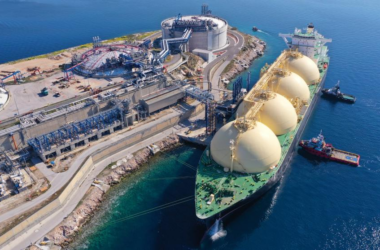As the world grapples with the pressing challenges of climate change, the upcoming Conference of the Parties (COP28) stands as a crucial juncture for global leaders to reaffirm and strengthen their commitments towards environmental sustainability. A focal point in these discussions will undoubtedly be the imperative need for advancements in the solar supply chain, recognizing its pivotal role in achieving the ambitious goals set forth in COP28 agreements.
The commitments expected to emerge from COP28 will likely underscore the urgency of transitioning to renewable energy sources to mitigate the impacts of climate change. Among these, solar energy holds significant promise as a clean and abundant resource with the potential to revolutionize the global energy landscape. However, the successful realization of these commitments hinges upon addressing and enhancing the efficiency of the solar supply chain.
One of the critical aspects demanding attention is the manufacturing process of solar panels and associated components. COP28 commitments necessitate a considerable increase in the production and deployment of solar technologies worldwide. Consequently, the solar supply chain must undergo substantial improvements to meet the escalating demand. This involves streamlining manufacturing processes, optimizing resource utilization, and adopting innovative technologies to enhance the overall efficiency of solar panel production.
Furthermore, the transportation and distribution of solar components across the globe are integral components of the supply chain that merit careful consideration. COP28 commitments require a global collaboration, and the seamless movement of solar equipment is paramount to ensure that renewable energy solutions can be implemented effectively on a global scale. Enhancements in logistics, such as the development of sustainable transportation methods and the reduction of carbon footprints in the supply chain, are indispensable for achieving the environmental objectives set by COP28.
Moreover, the commitment to sustainability extends beyond the manufacturing and logistics aspects to encompass the entire lifecycle of solar technologies. Recycling and responsible disposal of solar panels at the end of their lifespan are pivotal in ensuring that the environmental benefits of solar energy are not compromised by the generation of electronic waste. COP28 discussions will likely emphasize the importance of developing standardized and environmentally friendly practices for the disposal and recycling of solar components, urging stakeholders to adopt circular economy principles.
In conclusion, the commitments anticipated from COP28 underscore the necessity of a paradigm shift towards renewable energy, with solar power at the forefront of this transition. However, the successful realization of these commitments is contingent upon significant improvements within the solar supply chain. From manufacturing processes to logistics and end-of-life considerations, a comprehensive approach is imperative to ensure that solar technologies contribute substantially to global efforts in combating climate change. The world will be closely watching as leaders convene at COP28 to not only make promises but to also implement concrete measures for a sustainable and resilient future.








